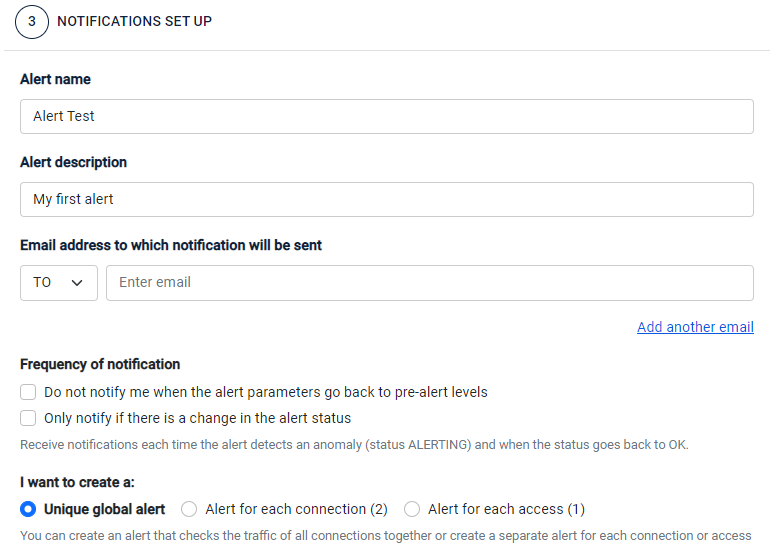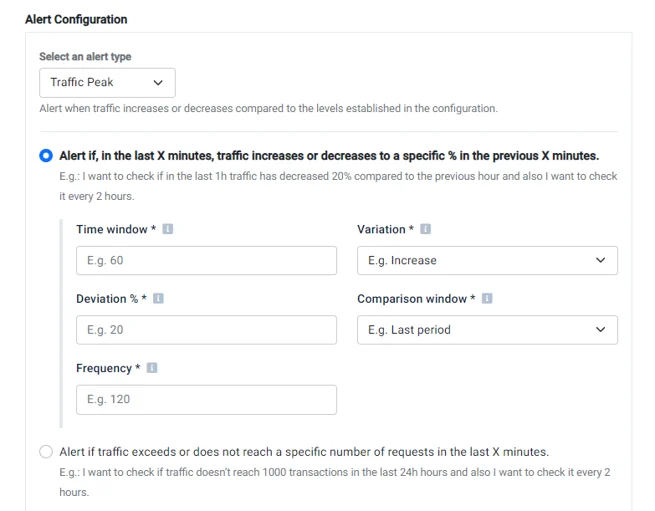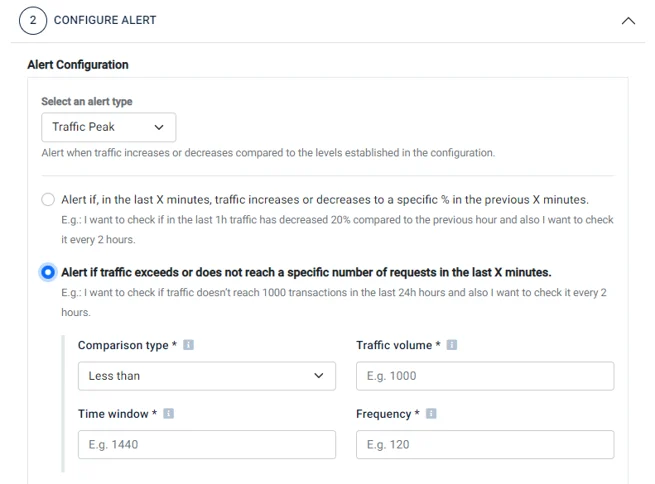Traffic Peak Alerts
How to Configure a New Traffic Peak Alert
-
Select Connection(s)

-
Configure the Alert: Define the conditions and set up the fields for your alert. Choose the appropriate options based on your needs.
-
Set Up Notifications: Configure how you want to receive alert notifications:
- Alert name and description
- Email recipients (TO and BCC)
- Notification frequency
- Alert creation options:
- Unique global alert
- Alert for each selected connection
- Alert for each selected access

Use Cases of Traffic Peak Alerts
1. Alert When Traffic Increases or Decreases by a Specific Percentage Over a Given Timeframe
Example: "Check if, in the last hour, traffic has decreased by 20% compared to the previous hour. The alert should check conditions every 2 hours."
- Time Window: Period over which the alert evaluates data (e.g., 60 minutes).
- Variation: Comparison type (Increase, Decrease, or Both). In this example: Increase.
- Deviation %: Minimum threshold for triggering an alert (e.g., 20%).
- Comparison Window: Defines the reference period (Last Period, Yesterday, or Last Week). In this example: Last Period.
- Frequency: How often the alert checks conditions: 1 hour → Evaluates traffic every hour. 2 hours → Evaluates traffic every 2 hours.

2. Alert When Traffic Volume Exceeds or Falls Below a Specified Threshold in a Given Timeframe
Example: "Check if traffic does not reach 1,000 transactions in the last 24 hours. The alert should check conditions every 2 hours."
- Comparison Type: Defines the condition (More Than or Less Than). In this example: Less Than.
- Traffic Volume: Threshold for triggering an alert (e.g., 1,000 transactions).
- Time Window: Period over which data is analyzed (e.g., 60 minutes).
- Frequency: How often the alert checks conditions:
- 60 minutes → Evaluates the last 60 minutes of traffic every hour.
- 30 minutes → Evaluates the last 60 minutes of traffic every 30 minutes.

Traffic Trends
Use the Traffic Trends section to include or exclude specific transaction conditions:

- Shopping Flow Steps: Select which shopping flow steps should be considered in the alert. For example, selecting "Search" ensures the alert only monitors Search transactions. By default, all steps are selected.
- Status Code: Specify which status codes should be included. For example, selecting "Communication" ensures the alert only monitors transactions with those codes. By default, all status codes are selected.